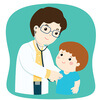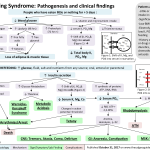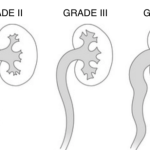Scenario
A concerned mother brings her 3 year child to the Outpatient Clinic; the child has had fever for 1 day, running nose and cough for 2 days. There are no other serious complaints and findings on examination are all normal, except for the running nose and a low grade fever. A case of common cold that is very common in childhood.
The mother is really concerned about the child contracting a pneumonia, but well there were no symptoms as such and pediatrician counsels her on that, but she wants an antibiotic for a safe-side. Doctor explains the condition and hazards of erroneous use of antibiotics and she is convinced.
She is equally concerned about the cough. She has been giving the child anti-tussives from over-the-counter prescription that is pandemic in our country. Doctor advice her to stop the drug as current research does not recommend its use in below four years children. She is not convinced this time, in-spite of counselling.
In such a scenario, either doctor keeps trying to convince her, either he loses the follow-up or he has to go with the flow and prescribe anti-tussives and vitamins as the trend running in private practice.

Pediatrics is a bit different subject to doctors in many sense. Specially in Pediatric out patient department or in private clinics, doctors will often find a mildly ill child but more skeptical parents who might constantly test you with their queries and doubts.
Pediatrics is different, it’s not just the treatment of a sick child that is important, but also meeting the parents expectations, counselling them well and taking them in confidence. Often, doctors meet a lot of patients who are already on antibiotics for viral URTI, so the dilemma sets in – to continue or to stop the medication. The trend in the private practice is so widespread that antibiotics are prescribed for cases without any indications. The fault is not just in doctors here but in parents as well who often switch doctors when doctor prescribe less drugs. However, it is what the nature of a care-taker is, they always wish to be on the safe side, while unknowingly they may be harming the child.
Erroneous and erratic use of antibiotics have led to antibiotic resistance. There was a time when penicillin was the Jack of All, a shot of it could treat almost everything. Today, plain penicilln has lost it’s power and rarely can treat any condition. These are the outcomes.
Meeting the Expectations of Parents
Parents generally expect their child to get well with just a day of the treatment, which is rarely a possibility, because most antibiotics take at-least 24-48 hours to get working. Counselling about the need and expected time of resolution can convince the parents to be more patient. They want all their qeries fulfilled and all their doubt cleared because they are on behalf of a child patient who cannot express many things and they are guardian to such delicate human beings. Show then the empathy and that you care equally for the welfare of the child. Be patient and answer all the queries they have. Doctors should put themselves in the place of parents and try to fulfill their queries.
When they seek for your qualifications and experience, face them confidently and without hesitations. Getting angry at such things, may lead you to lose a rapport and trust. They always want best among the pediatricians to treat their child, so they may test you with several questions. The doctor must let them know that they are equally good and take them in confidence.
And last of all, don’t give up ethically to prescribe medications for parent’s satisfaction. Do it only when you know it is required. And the question is “is it possible?”
I may not be totally right as I have a long journey to go. If you have a different opinion, I welcome your feedback.

MD Pediatrics and Fellowship Neonatology, he chooses to stay anonymous. He often writes his views online as well as share few important topics for medical students, doctors and specially parents. He does research in pediatrics.





